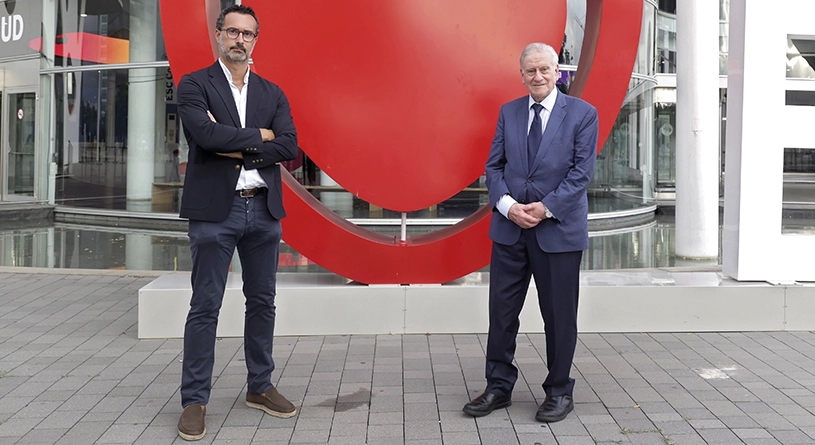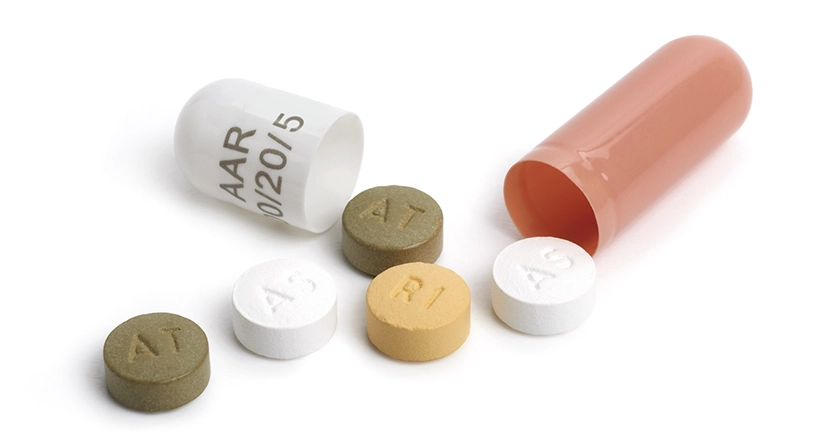Polypill: three drugs in one pill to prevent a second infarction

Simplifying the treatment for cardiovascular disease and making it accessible to everyone. The polypill, developed by CNIC and Laboratorios Ferrer, has shown that taking a single pill daily after myocardial infarction is not only the most convenient option, but also saves lives. The effectiveness of the polypill to prevent cardiovascular events after a heart attack has been confirmed, with a 24% decrease in cardiovascular events and a 33% decrease in cardiovascular death among patients who had previously suffered a myocardial infarction.
These were the conclusions of the SECURE study, presented in the Hot Line session at the last European Society of Cardiology Conference (ESC 2022), held in Barcelona, with findings published in The New England Journal of Medicine (NEJM). “For the first time, the SECURE data show that the polypill, which contains aspirin, atorvastatin and ramipril, achieves clinically relevant reductions in recurrent cardiovascular events among people who have suffered a previous heart attack,” highlights the SECURE study’s principal investigator, Dr. Valentín Fuster, Director General of CNIC, Director of Mount Sinai Heart, and Medical Director of Mount Sinai Hospital.
The American Heart Association (AHA) also selected SECURE as one of the most relevant scientific studies in the field of cardiology in 2022.
“Cardiovascular disease is often termed the epidemic of the 20th century,” says Óscar Pérez, Ferrer’s Chief Marketing, Market Access and Business Development Officer. And despite the solid evidence showing the high prevalence of cardiovascular risk factors in the population, he adds, “it is frequently true that preventive strategies do not achieve the desired results, partly due to low adherence on the part of the patient, which is to say they do not fully comply with taking their prescribed medications.”
The idea for this project arose in 2006, during a trip to Russia. While he was there, Dr. Fuster noticed the low level of treatment adherence. Not only because of the inconvenience of taking all of the pills, but also due to the high price of the medications. It was then that he had the idea that a formula originally envisioned for HIV treatment could be used to combat the pandemic of cardiovascular diseases, which are the most lethal worldwide.

The data of the SECURE study show for the first time that the polypill achieves clinically relevant reductions in recurrent cardiovascular events among patients who have suffered a myocardial infarction
He later joined forces with Ferrer, and the heart polypill project began. “In Ferrer we are committed to generating a positive impact on society and, in our mission to improve people’s the health and quality of life, we firmly believe that private-public collaboration is one of the main motors of innovation. So, when we came across this project with such profound social importance as improving the prevention of cardiovascular disease, our response was firm and resolute,” remembers Óscar Pérez.
Now, after three years of research, the new study vindicates Dr. Valentín Fuster.
Despite emphasis on preventive factors against cardiovascular diseases, many people suffer a heart attack, which means they have to follow a treatment for life.
Dr. Fuster explains that the medications to improve life expectancy after a heart attack are well known: “All patients who have suffered myocardial infarction and do not have contraindications must take a statin to reduce cholesterol, ACE inhibitors, a beta blocker and aspirin. The problem is that this medication has to be taken every day, which means the patient has to take a large number of pills.”
Although this patient group is very aware, following this therapeutic regimen is no easy task. We know that 50% of patients with chronic conditions do not take their medication correctly. This lack of treatment adherence determines lower protection and an increase in complications.
There are many reasons that influence treatment adherence, but one of the major ones is the complexity of the therapy the patient receives. The higher the number of drugs or the greater the complexity, the lower the adherence. Moreover, secondary prevention medication (for people who have already suffered a heart attack) in some countries, generally low to middle income ones, has a cost that is prohibitive for most of the population. Consequently, the disease continues to spread throughout the world like an epidemic.
VALENTÍN FUSTER: “The polypill could form an integral part of strategies to prevent cardiovascular events among patients who have suffered an infarction. As the treatment is simplified and adherence improves this approach has the potential to reduce the risk of recurrent disease and cardiovascular death on a worldwide scale”
“The SECURE findings suggest that the polypill could form an integral part of the strategies to prevent cardiovascular events in people who have suffered an infarction,” highlights Dr. Fuster. “As treatment is simplified and adherence improves, this approach has the potential to reduce the risk of recurrent cardiovascular disease and death on a worldwide scale.” For Fuster, “these new results have a great impact both for patients and healthcare systems.”
The cardiovascular polypill is currently available in 25 countries.
















